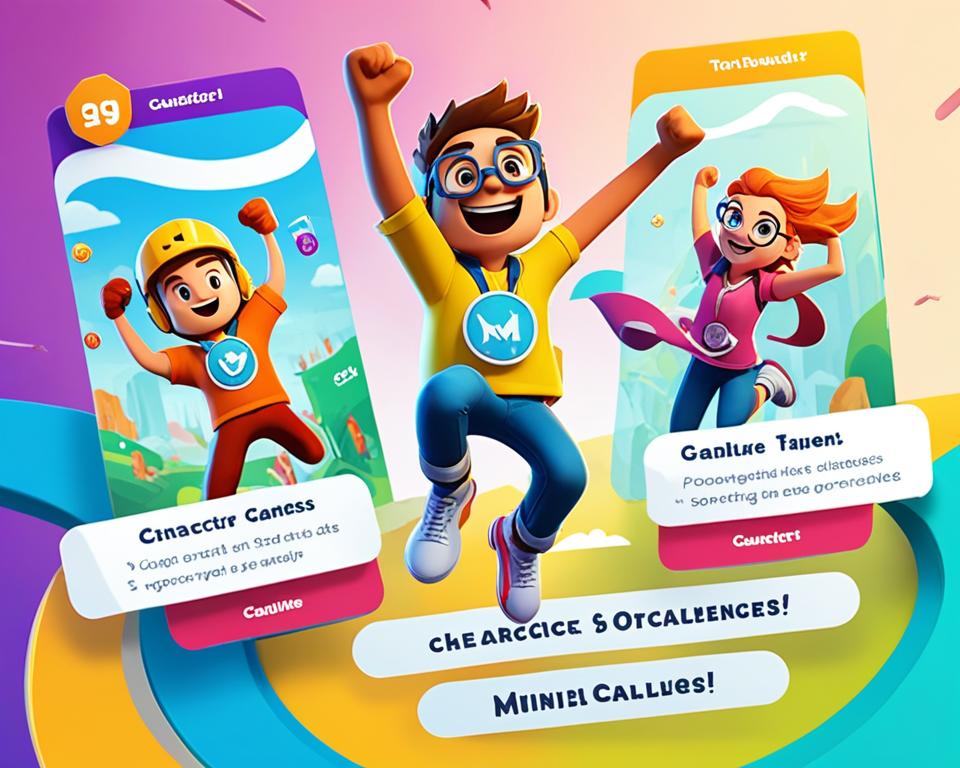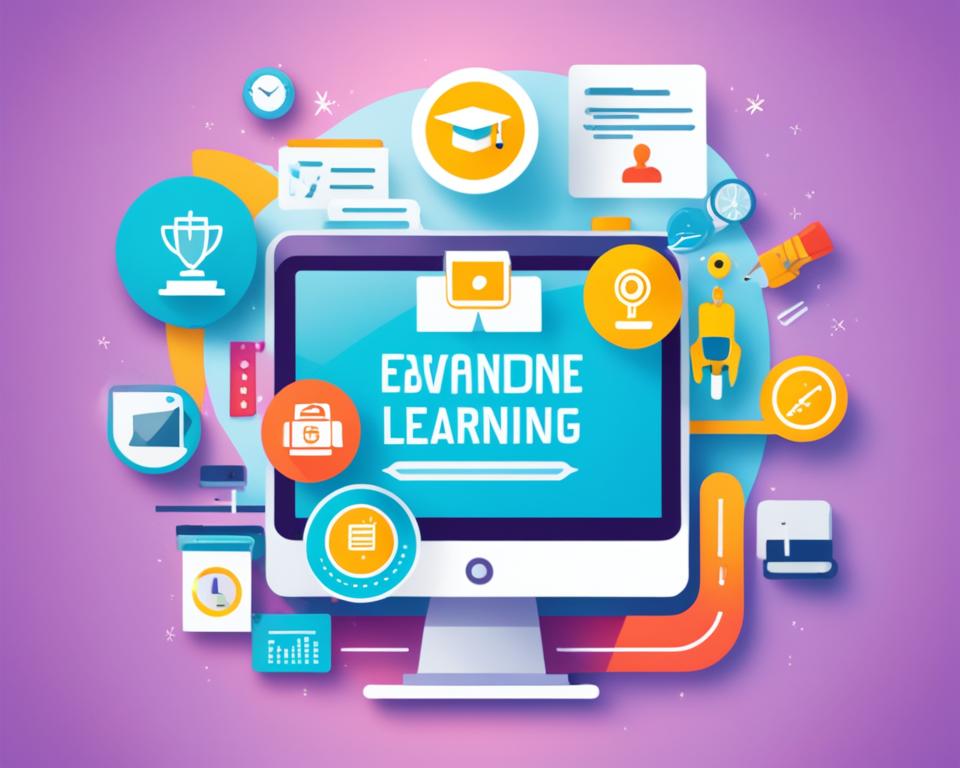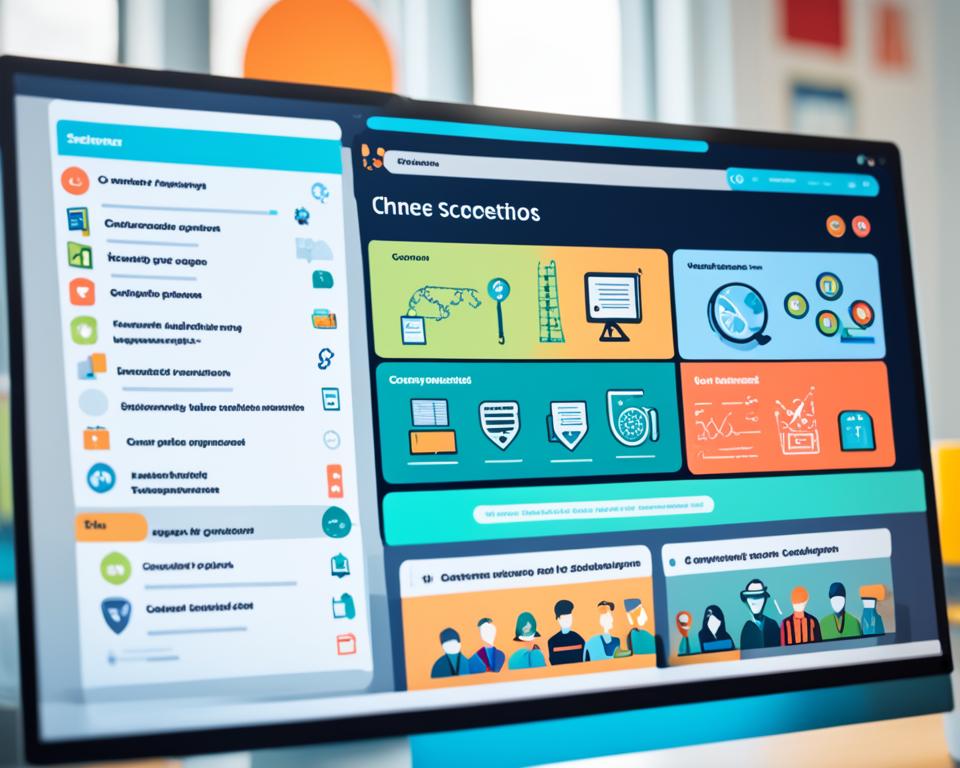Online learning has become increasingly popular, especially in the wake of the COVID-19 pandemic. Many individuals are turning to online courses and educational platforms to enhance their skills and knowledge from the comfort and safety of their own homes.
However, not all online learning programs are created equal. To truly boost skills and knowledge, learners need a tailored and personalized learning experience. This is where platforms like Wize shine.
Wize is an educational platform designed to provide students with a comprehensive set of foundational online learning experiences. By allowing students to take a quiz and assess their knowledge, Wize recommends courses that align with their specific needs and areas of improvement.
In addition to personalization, on-demand access and content broken down into manageable pieces contribute to a successful online learning experience. Students can study at their own pace, whenever and wherever they choose. This flexibility ensures that learners can comfortably fit their studies into their busy lives.
Key Takeaways:
- Foundational online learning experiences provide a flexible and personalized approach to skill development.
- Platforms like Wize offer tailored courses based on individual knowledge assessments.
- On-demand access allows learners to study at their own pace and convenience.
- Content broken down into manageable pieces enhances the learning experience.
- Choose the right online learning platform for personalized and effective skill development.
The Importance of Personalization in Online Learning
Personalized learning is a crucial element in the success of online education. Every student is unique, with their own individual learning styles, strengths, and weaknesses. To ensure an effective learning experience, it is essential to provide customized education that meets the specific needs of each learner.
Platforms like Wize understand the importance of tailoring online courses to address the unique requirements of students. By conducting a quiz to assess students’ level of knowledge, Wize can recommend courses that align with their needs. This tailored approach allows learners to focus on the areas where they need improvement the most, maximizing their learning potential and promoting better outcomes.
Personalized learning goes beyond simply providing content; it involves adapting the learning experience to match individual learners’ preferences and capabilities. By customizing online courses, educators can create a tailored learning experience that engages and motivates students.
Moreover, personalized learning can enhance students’ self-confidence and build a strong foundation of knowledge. When learners feel that their education is specifically designed to address their unique needs, they are more likely to be proactive in their studies and feel a sense of ownership over their learning journey.
The Benefits of Personalized Learning:
- Enhances engagement and motivation
- Fosters a sense of ownership and empowerment
- Allows learners to focus on areas for improvement
- Promotes better understanding and retention of knowledge
- Caters to diverse learning styles and preferences
- Provides a more meaningful and relevant learning experience
Overall, personalized learning is key to unlocking the full potential of online education. By tailoring courses to individual learners’ needs, online platforms like Wize are revolutionizing education and providing a more effective and tailored learning experience for students.
The Benefits of On-Demand Access in Online Learning
In traditional classrooms, students often have to follow a set pace of instruction that may not cater to their individual learning needs. This one-size-fits-all approach can leave some students feeling left behind or unchallenged. However, the advent of online learning has revolutionized education by offering on-demand access, providing learners with the flexibility to study anytime, anywhere, and at their own pace.
On-demand learning allows students to progress through the course material according to their individual preferences and capabilities. They can move through concepts more quickly if they find them easy, allowing them to allocate more time to challenging topics that require additional attention. This personalized learning experience helps students maximize their learning potential and achieve better outcomes.
Flexible learning, enabled by on-demand access, offers numerous benefits to learners. Firstly, it allows them to fit learning into their busy schedules, giving them the freedom to balance work, personal commitments, and education. Busy professionals, parents, or individuals with irregular schedules can now pursue their educational goals without the constraints of set class times and locations.
Secondly, on-demand learning nurtures self-paced learning, empowering students to take control of their educational journey. Learners have the autonomy to engage with the material when they are most receptive and focused, leading to improved knowledge retention and comprehension. Being able to pause, rewind, and revisit lessons facilitates deeper understanding and mastery of the subject matter.
Lastly, on-demand access provides a sense of ownership and responsibility for learners. They can take charge of their learning, setting their own goals, and monitoring their progress. This self-directed learning approach fosters intrinsic motivation and a stronger sense of accomplishment, as learners feel empowered and in control of their educational experience.
On-demand learning offers flexible and self-paced learning experiences that cater to the unique preferences and needs of each student.
Enhancing Accessibility for Diverse Learners
On-demand access is particularly beneficial for diverse learners who may face additional challenges in traditional classrooms. Individuals with disabilities, learning differences, or limited access to transportation can greatly benefit from the flexibility and convenience of online learning.
With online courses that offer on-demand access, learners with disabilities can study in an environment that accommodates their specific needs and preferences. They can access assistive technologies, such as screen readers or captioning services, that promote inclusivity and equality in education.
Furthermore, on-demand learning eliminates geographical barriers, ensuring that individuals in remote or underserved areas have equal access to quality education. Students who may have limited transportation options or face long commutes can now participate in online courses that offer the same educational opportunities as their peers in more urban areas.
Let’s now explore a case study that highlights the benefits of on-demand learning:
| Case Study: Wize Academy | Description |
|---|---|
| Wize Academy is an online learning platform that provides on-demand access to a wide range of courses in various subjects. | |
| Results: | |
|
|
In conclusion, on-demand access in online learning offers numerous benefits, including flexible and self-paced learning, enhanced accessibility for diverse learners, and a sense of ownership and responsibility for students. By leveraging the advantages of on-demand learning, educational institutions and platforms can provide a more inclusive, personalized, and effective learning experience for learners of all backgrounds and circumstances.
The Importance of Breaking Down Content in Online Learning
Online learning provides a flexible and convenient way for learners to acquire new skills and knowledge. However, lengthy lessons can often overwhelm online learners and hinder their progress. That’s why breaking down content into smaller, more manageable pieces is crucial in ensuring an effective and engaging learning experience.
By presenting information in bite-sized segments, online courses can cater to the diverse learning needs and preferences of students. This approach allows learners to complete the material in one sitting or review specific sections at their own pace. Wize, an innovative online learning platform, discovered that learners on their platform had an average session duration of 25 minutes. This indicates that learners are more likely to watch an entire video or complete a lesson when the content is delivered in manageable pieces.
Bite-sized learning has several benefits. Firstly, it helps learners to stay focused and retain information more effectively. When content is broken down into smaller chunks, learners can digest and process the information more easily, preventing cognitive overload. Additionally, bite-sized lessons promote active learning as learners can actively engage with each segment, reflect on the material, and apply their knowledge in real-world scenarios.
“Breaking down content into manageable pieces allows learners to focus on specific topics and gain a deeper understanding of the subject matter.” – Dr. Sarah Johnson, Education Expert
Segmented lessons also improve learner motivation and engagement. The sense of accomplishment gained from completing each segment provides a positive reinforcement, encouraging learners to continue their learning journey. Furthermore, the ability to track progress and see tangible results promotes a sense of achievement and motivates learners to stay committed to their learning goals.
To illustrate the impact of breaking down content, consider the following table:
| Online Course | Description | Session Duration |
|---|---|---|
| Course A | A comprehensive course on web development | 10 hours |
| Course B | A beginner’s guide to graphic design | 6 hours |
| Course C | An introduction to financial literacy | 4 hours |
As shown in the table, breaking down content into shorter sessions enables learners to allocate their time more effectively and manage their progress efficiently. Learners can easily fit shorter sessions into their busy schedules and maintain consistent learning habits.
In conclusion, breaking down content into manageable pieces is a fundamental aspect of online learning. By delivering bite-sized lessons, online courses can enhance learner engagement, improve retention, and promote active learning. The success of Wize’s platform and the positive feedback from learners demonstrate the effectiveness of this approach. Whether you’re a student, professional, or lifelong learner, embracing the power of segmented lessons will help you make the most of your online learning experience.
The Power of Gamification in Online Learning
Gamification is a highly effective technique in online learning that enhances engagement, promotes interactivity, and boosts motivation among learners. By incorporating game-like elements, such as points, badges, and progress tracking, online courses create a more immersive and enjoyable learning environment.
When learners are motivated and actively engaged in their educational journey, they are more likely to retain knowledge and achieve better learning outcomes. Gamified learning taps into the innate human desire for challenge, competition, and rewards, making the learning experience more appealing and exciting.

Gamification in online courses offers a range of benefits. Firstly, it provides learners with a sense of achievement and progress. By earning points or badges for completing tasks and reaching milestones, learners experience a tangible sense of accomplishment, which drives them to continue their learning journey.
Interactive learning experiences through gamification also facilitate active participation and knowledge retention. Learners can actively engage with the course content, solve problems, make decisions, and receive immediate feedback, all of which contribute to a deeper understanding of the subject matter.
Engagement and Motivation
“Gamification keeps learners motivated as they earn rewards and progress through the course.”
Furthermore, gamified learning promotes healthy competition among learners, fostering a sense of camaraderie and peer interaction. Whether through leaderboards, challenges, or collaborative activities, learners can connect with their peers, compare their progress, and learn from each other.
Wize, an innovative online learning platform, harnesses the power of gamification to keep learners engaged and motivated throughout their learning journey. By incorporating progress bars, celebratory pop-ups, and words of encouragement, Wize creates an interactive and rewarding experience that encourages learners to continuously strive for excellence.
Rewards and Badges
One of the key features of gamified learning is the use of rewards and badges. These virtual incentives serve as visible recognition of learners’ accomplishments and milestones. By earning badges for completing modules, achieving high scores, or demonstrating mastery, learners feel a sense of pride and motivation to continue their progress.
The use of rewards and badges in gamified learning also helps to foster a growth mindset among learners. By emphasizing progress and celebrating achievements, learners are encouraged to embrace challenges, persevere through difficulties, and continuously improve their skills.
The Impact of Gamification
The impact of gamification in online learning is significant. Research has shown that gamified courses result in higher levels of engagement, increased knowledge retention, and improved learning outcomes.
According to a study conducted by the eLearning Guild, learners who experienced gamified learning reported a 14% higher skill-based knowledge retention and a 9% increase in satisfaction compared to those who went through traditional learning methods.
| Benefits of Gamification in Online Learning | Percentage Increase |
|---|---|
| Engagement | 35% |
| Knowledge Retention | 28% |
| Completion Rates | 22% |
| Positive Learning Experience | 17% |
Gamified learning has also shown to improve completion rates, with learners more likely to complete a course when gamification elements are incorporated. This is because the interactive and rewarding nature of gamified learning keeps learners motivated and committed to their learning journey.
Overall, integrating gamification into online learning provides a powerful tool for enhancing learner engagement, motivation, and knowledge retention. By creating an interactive and enjoyable learning experience through rewards, badges, and progress tracking, gamified learning empowers learners to unlock their full potential and achieve success in their educational endeavors.
Strategies to Improve Online Learning Engagement
Sustaining student engagement is crucial in online learning. Motivation tends to decline over time, so it’s essential to employ strategies that keep learners actively involved. Online instructors can encourage engagement by incorporating interactive activities such as polls, breakout sessions, and discussions. These activities provide opportunities for students to actively participate in the learning process, share their perspectives, and collaborate with their peers.
Active learning opportunities, such as case studies or research projects, play a significant role in increasing student engagement. These hands-on experiences allow learners to apply their knowledge in real-world contexts, deepen their understanding of the subject matter, and promote critical thinking. By actively engaging with the course material, students become more invested in their learning and are more likely to retain and apply the knowledge gained.
To enhance engagement and interactivity, online instructors can also utilize simulations and virtual reality experiences. These technologies create immersive learning environments that captivate students’ attention and provide them with unique learning experiences. Simulations and virtual reality offer opportunities for active exploration, experimentation, and problem-solving, enabling students to develop practical skills and a deeper understanding of the subject matter.
“Active learning opportunities, such as case studies or research projects, play a significant role in increasing student engagement.”
In addition to incorporating interactive activities and active learning opportunities, online instructors can utilize various tools and technologies to promote engagement. For example, online whiteboards can facilitate collaborative brainstorming and idea-sharing, while video conferencing platforms enable real-time discussions and debates. These tools create a sense of connection and community among learners, fostering a supportive and engaging online learning experience.
Engagement Strategies in Online Learning:
- Include interactive activities such as polls, breakout sessions, and discussions.
- Incorporate active learning opportunities like case studies and research projects.
- Utilize simulations and virtual reality experiences for immersive learning.
- Make use of online whiteboards and video conferencing platforms for collaboration and real-time interaction.
| Activity | Description |
|---|---|
| Polls | Interactive surveys or quizzes that allow students to provide their opinions or select from multiple choice options. |
| Breakout Sessions | Small group discussions or activities that encourage collaboration and active participation. |
| Discussions | Online forums or discussion boards where students can ask questions, share ideas, and engage in conversations. |
| Case Studies | Real-world scenarios or examples that require students to analyze, problem-solve, and apply theoretical concepts. |
| Research Projects | Independent or group research assignments that allow students to explore a specific topic or question in-depth. |
| Simulations | Virtual environments or activities that replicate real-world situations and provide opportunities for practice and experimentation. |
Addressing Equity Issues in Online Learning
Online learning has the potential to bridge gaps in education and provide equal opportunities for all learners. However, it’s important to address equity issues that may arise. Not all students have equal access to technology, reliable internet connections, or distraction-free study spaces.
Instructors must be mindful of these challenges and provide flexible learning options, multiple ways to access course resources, and opportunities for extra credit. By accommodating the needs of diverse learners, online courses can create a more inclusive and equitable learning environment.
Flexible Learning Options
One way to address equity issues in online learning is by offering flexible learning options. This includes providing asynchronous learning opportunities, allowing students to access course materials and complete assignments at times that suit their schedules. By removing the barrier of fixed class timings, students with different responsibilities or time constraints can still fully engage in the learning process.
Multiple Ways to Access Course Resources
To cater to diverse learners, it’s essential to offer multiple ways to access course resources. This could involve providing text-based materials for students who prefer reading, as well as video lectures for visual learners. Additionally, offering alternative formats for assessments, such as written assignments or oral presentations, ensures that students can demonstrate their knowledge and skills in a way that aligns with their strengths.
Opportunities for Extra Credit
Providing opportunities for extra credit is another strategy to address equity issues in online learning. Extra credit assignments can help students who may have faced challenges in accessing certain resources or experienced technical difficulties. This ensures that all students have a fair chance to demonstrate their understanding and improve their grades.
“By accommodating the needs of diverse learners, online courses can create a more inclusive and equitable learning environment.”
Equity is a crucial aspect of online learning. By implementing flexible learning options, offering multiple ways to access course resources, and providing opportunities for extra credit, instructors can ensure that all students have an equal chance to succeed, regardless of their background or circumstances.

| Issue | Solution |
|---|---|
| Unequal access to technology | Providing resources for loan or offering technology support programs |
| Unreliable internet connections | Offering offline access to course materials or providing alternative ways to submit assignments |
| Distraction-prone study spaces | Encouraging students to find quiet study areas or implementing time management strategies |
By addressing equity issues in online learning, instructors can create an environment that supports the success of all learners, promotes inclusive learning experiences, and ensures equal access to quality education.
Supporting Struggling Students in Online Learning
In the current crisis, many students are facing various challenges that may impact their academic performance. Online instructors have a crucial role in identifying and supporting these struggling students to ensure their success. By monitoring student engagement, providing regular check-ins, and offering assistance in areas like technology or mental health, instructors can play a vital role in supporting their students’ well-being and academic progress.
Empathy and flexibility are key attributes that online instructors should employ when working with struggling students. By understanding the diverse difficulties students may face, instructors can offer extensions on deadlines, provide alternative assessment methods, and accommodate individual circumstances. This flexibility creates a supportive environment that empowers students to overcome obstacles and achieve their goals in online learning.
The Importance of Student Engagement and Feedback
Actively engaging struggling students is a proven strategy to enhance their learning experience. Instructors should provide prompt feedback on assignments, assessments, and participation to help students understand their progress and areas for improvement. Additionally, scaffolding techniques such as breaking down complex tasks into smaller, manageable steps can support struggling students’ learning journey.
“Engaged students are more likely to persist in their studies and experience academic success. By providing ongoing support and feedback, instructors can motivate struggling students and help them stay on track.” – Dr. Sarah Johnson, Online Education Expert
Instructors can also foster a supportive learning community by encouraging interaction among students. Group discussions, peer-to-peer collaborations, and virtual study groups enable struggling students to exchange ideas, receive support, and build meaningful connections with their peers.
Addressing Mental Health in Online Learning
Mental health is a critical aspect of student well-being, especially during times of crisis. Online instructors should be mindful of the emotional challenges that struggling students may face and provide resources for mental health support. This can include referring students to counseling services, offering stress management techniques, or creating a safe space for students to express their concerns and seek guidance.
By creating a supportive and inclusive learning environment, online instructors play a vital role in helping struggling students achieve success in their online learning endeavors. With the right support and guidance, every student can overcome challenges and thrive in their educational journey.
| Strategies to Support Struggling Students in Online Learning | Benefits |
|---|---|
| Regular student check-ins | Instructors can gauge student progress and provide personalized support. |
| Flexible deadlines and assessments | Accommodating individual circumstances fosters student motivation and success. |
| Prompt feedback and scaffolding | Students receive guidance and can improve their performance over time. |
| Promote student engagement | Active participation enhances motivation and achievement. |
| Provide mental health resources | Supporting students’ well-being contributes to their overall success. |
The Efficacy of Online Courses in Foundational Medical Sciences
Foundational online courses play a crucial role in online medical education, providing students with the necessary knowledge and skills for success in medical training. These courses are particularly beneficial for students with varying levels of preparation, as they enable individuals to gain competence in foundational medical sciences.
By offering online courses, medical schools can increase diversity in their cohorts by providing access to pre-med courses for a wider range of students. This inclusive approach ensures that aspiring medical professionals, regardless of their background, have the opportunity to acquire the foundational knowledge necessary to excel in their medical training.
Evidence-based learning practices employed in online medical education, such as the use of short videos, real-world examples, and frequent assessments, contribute to effective learning outcomes. These practices enhance students’ understanding and retention of complex medical concepts, improving their overall competence in medical training.
The Benefits of Online Medical Education
Online courses offer several advantages for learners seeking competence in foundational medical sciences:
- Flexibility: Students can access course materials and lectures at their own convenience, allowing them to balance their studies with other commitments.
- Accessibility: Online courses eliminate geographic barriers, enabling students from diverse locations to access the same high-quality education.
- Self-paced learning: Learners can progress through the material at a comfortable pace, dedicating more time to challenging topics and reviewing content as needed.
- Interactive learning resources: Online courses often utilize interactive tools and simulations, providing hands-on learning experiences that enhance understanding and retention.
Online medical education empowers students to pursue their passion for medicine and build a solid foundation of knowledge to guide them throughout their medical careers. With the flexibility and accessibility of online courses, aspiring medical professionals have the opportunity to embark on their journey to becoming competent healthcare providers.
Realizing the Potential of Online Pre-Med Courses
To maximize the effectiveness of online pre-med courses, it is crucial to ensure that they are designed and delivered by experienced educators in collaboration with medical professionals. Their expertise allows for the creation of comprehensive and up-to-date curriculum that aligns with the requirements of medical training programs.
| Key Elements of Effective Online Pre-Med Courses | Illustrative Examples |
|---|---|
| Clear learning objectives | Each module or lesson clearly outlines the goals and expected outcomes to guide students’ learning. |
| Engaging multimedia content | Short videos, animations, and interactive simulations facilitate understanding and maintain student engagement. |
| Varied assessments | Frequent quizzes, case studies, and self-assessments provide opportunities for students to evaluate their understanding and progress. |
| Virtual problem-solving activities | Simulated patient scenarios and virtual laboratory experiments enhance critical thinking and problem-solving skills. |
Online courses provide aspiring medical professionals with the opportunity to gain competence in foundational medical sciences, contributing to increased diversity in medical school cohorts and fostering a more inclusive healthcare workforce.
By harnessing the potential of online medical education and offering well-designed pre-med courses, educational institutions are equipping future healthcare professionals with the knowledge and skills they need to succeed in their medical training.
Conclusion
Foundational online learning experiences offer a powerful way to boost skills and knowledge in today’s digital age. Through personalized learning, on-demand access, manageable content, gamification, and engagement strategies, online education has the potential to transform educational experiences and empower learners to achieve their goals.
By personalizing the learning experience, online platforms like Wize ensure that students receive the foundational knowledge they need to improve their skills. The ability to access courses anytime and anywhere allows for flexibility and tailored learning experiences that suit individual needs and preferences. Breaking down content into manageable pieces enhances comprehension and retention, ensuring that learners can grasp complex concepts effectively.
Gamification adds an interactive and enjoyable element to online courses, motivating students to stay engaged and progress through the material. By incorporating game-like elements such as badges, points, and progress tracking, learners are rewarded for their efforts and feel a sense of accomplishment. This approach fosters a positive learning environment and increases overall student motivation.
However, it’s important to address equity issues and support struggling students in online learning. By providing equal access to resources, flexible learning options, and additional support, online courses can create an inclusive and supportive learning environment for learners from diverse backgrounds. Through empathy, prompt feedback, and scaffolding, instructors can help struggling students overcome obstacles and achieve success in their online learning journeys.
Online education offers endless possibilities for personal and professional growth. With comprehensive courses that cater to learners of all backgrounds, it provides the flexibility needed for individuals to pursue their educational goals with confidence. Foundational online learning experiences lay the groundwork for success in fields like medical training, offering accessible and effective ways to gain competence in essential subjects.
As technology continues to advance, online education will play an increasingly vital role in improving skills and knowledge. By embracing personalization, on-demand access, manageable content, gamification, and engagement strategies, online learning has the potential to revolutionize education and create a brighter future for learners all over the world.
FAQ
How can foundational online learning experiences boost skills?
Foundational online learning experiences provide a comprehensive and flexible way to acquire new skills and knowledge. These courses are designed to provide learners with a strong foundation in a specific subject area, enabling them to build upon this knowledge and enhance their skills.
Why is personalization important in online learning?
Personalization is important in online learning because it allows courses to be tailored to meet the specific needs and learning styles of individual students. By customizing the learning experience, students can focus on the areas where they need improvement, leading to a more effective and engaging learning journey.
What are the benefits of on-demand access in online learning?
On-demand access in online learning allows students to study anytime, anywhere, and at their own pace. This flexibility is beneficial because it accommodates the individual needs and preferences of learners. Students can move through concepts more quickly or spend more time on challenging topics, promoting a more personalized and effective learning experience.
How does breaking down content contribute to effective online learning?
Breaking down content into smaller, more manageable pieces is essential for effective online learning. By presenting information in short segments, learners can complete material in one sitting or review specific sections at their own pace. This approach reduces overwhelm and enhances comprehension, leading to a more successful learning experience.
What is the power of gamification in online learning?
Gamification, the incorporation of game-like elements, enhances engagement and motivation in online learning. Features such as points, badges, and progress tracking create an interactive and enjoyable learning environment. Gamification keeps learners motivated and provides a sense of accomplishment, fostering a positive and rewarding learning experience.
How can online courses improve student engagement?
Online courses can improve student engagement by incorporating interactive activities such as polls, breakout sessions, and discussions. Active learning opportunities, such as case studies or research projects, deepen understanding and promote critical thinking. Increasing learner engagement is key to maintaining motivation and promoting effective learning outcomes.
How can equity issues be addressed in online learning?
Equity issues in online learning can be addressed by providing flexible learning options, multiple ways to access course resources, and opportunities for extra credit. Instructors must be mindful of the diverse needs of learners and take steps to create an inclusive and equitable learning environment for all students.
How can struggling students be supported in online learning?
Struggling students in online learning can be supported through frequent check-ins, offering assistance in areas like technology or mental health, and providing empathy and flexibility in deadlines and assessments. Prompt feedback and scaffolding aid student progress and promote a supportive learning community.
What is the efficacy of online courses in foundational medical sciences?
Online courses in foundational medical sciences play a crucial role in medical education. These courses provide the necessary knowledge and confidence for success in medical training, making them essential for increasing diversity in medical school cohorts. Online courses offer accessible and flexible options for learners to gain competence in foundational medical sciences.
How can foundational online learning experiences boost skills?
Foundational online learning experiences provide a comprehensive and flexible way to acquire new skills and knowledge. These courses are designed to provide learners with a strong foundation in a specific subject area, enabling them to build upon this knowledge and enhance their skills. With personalization, on-demand access, manageable content, and engaging strategies, online learning can truly transform educational experiences and empower learners to achieve their goals.





